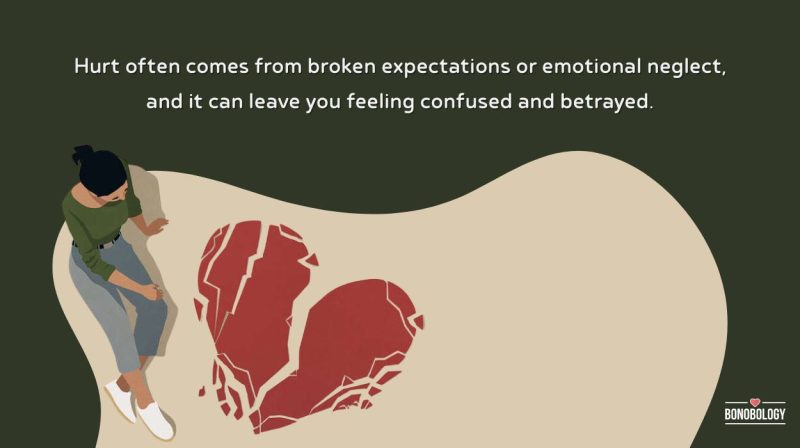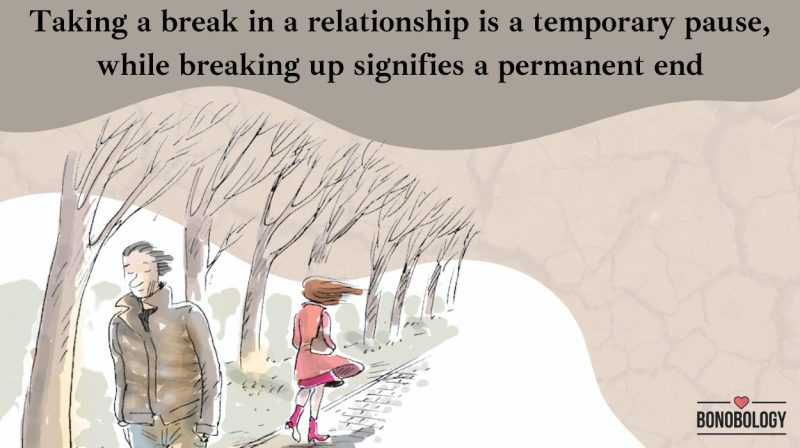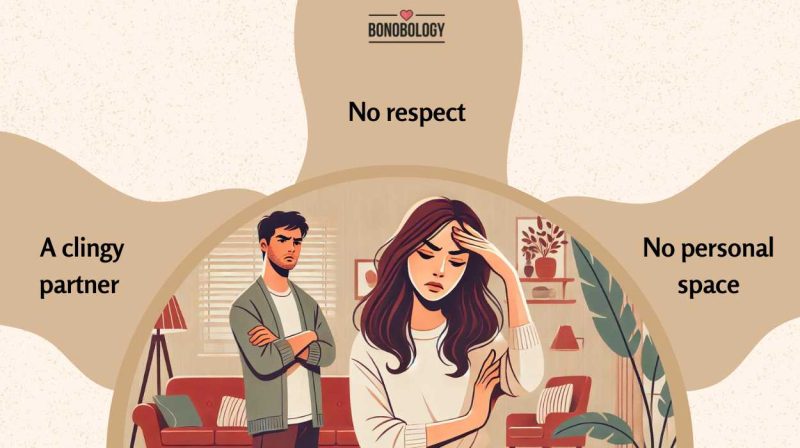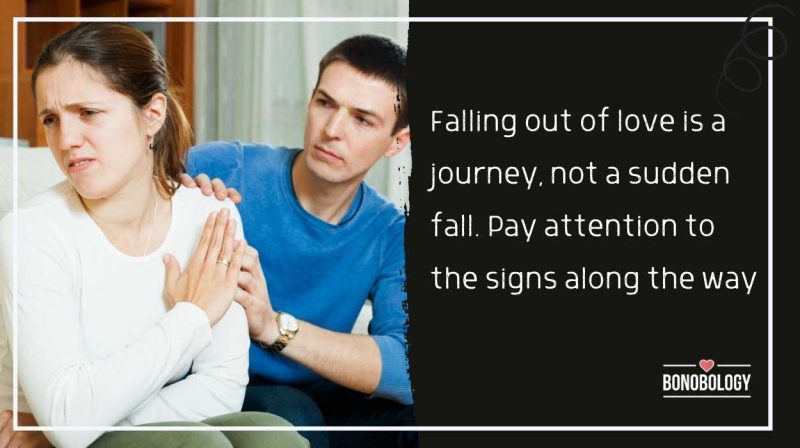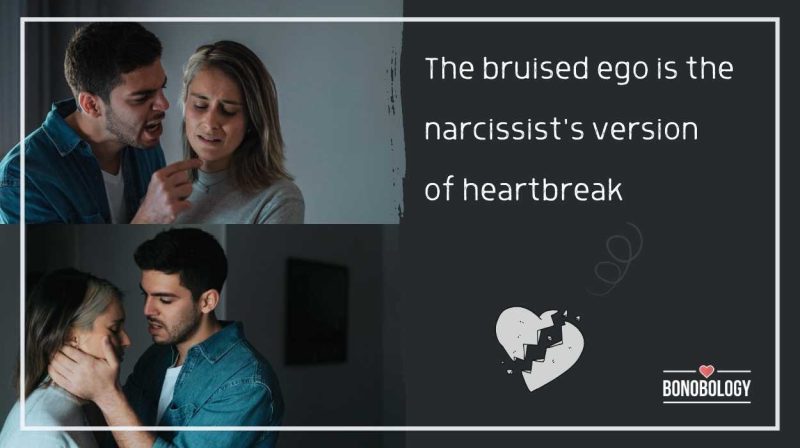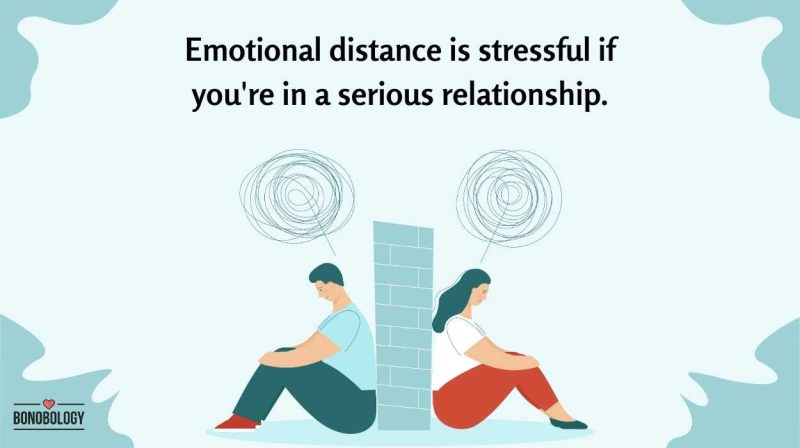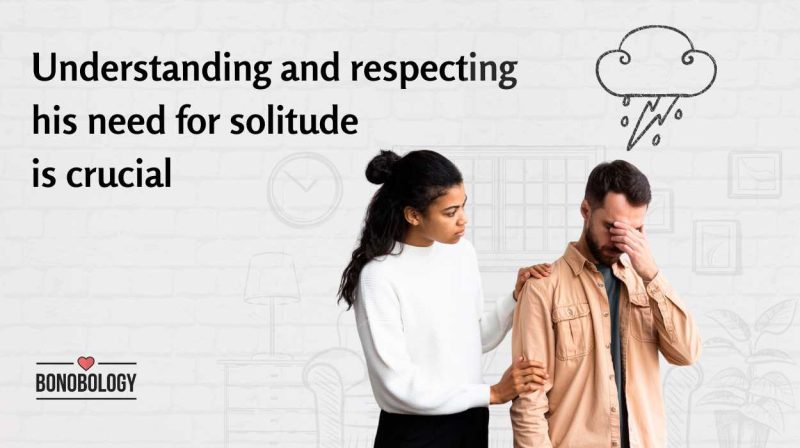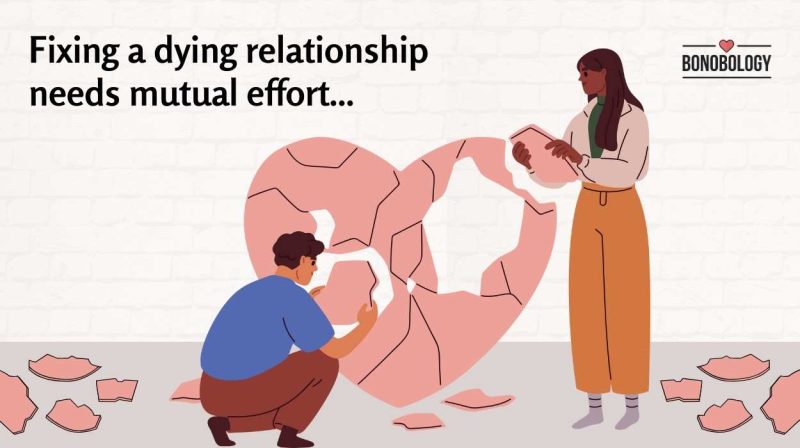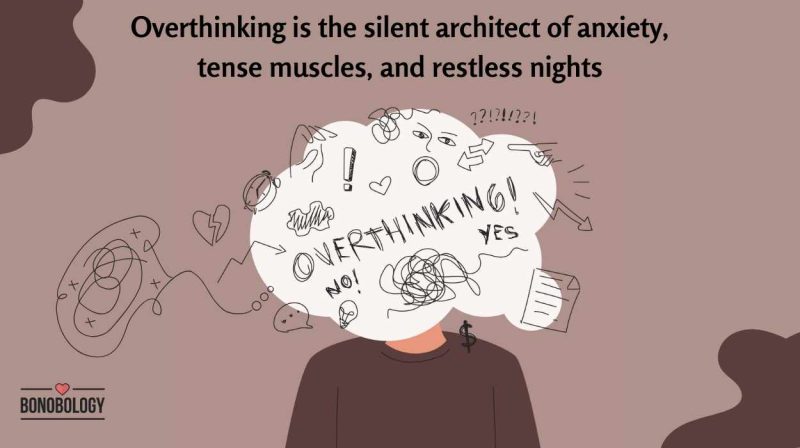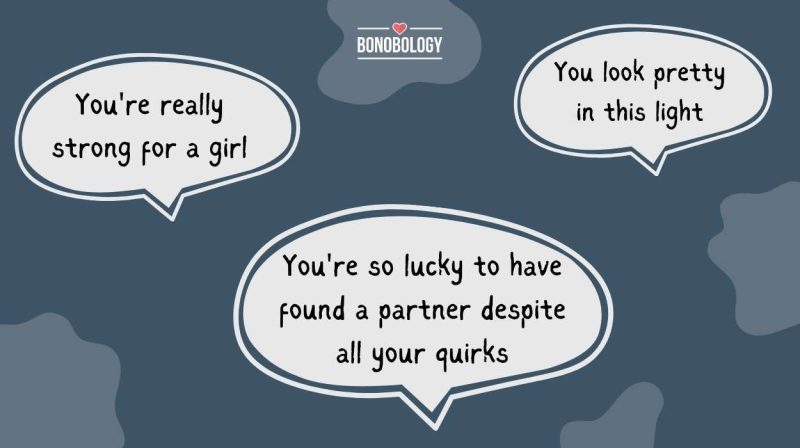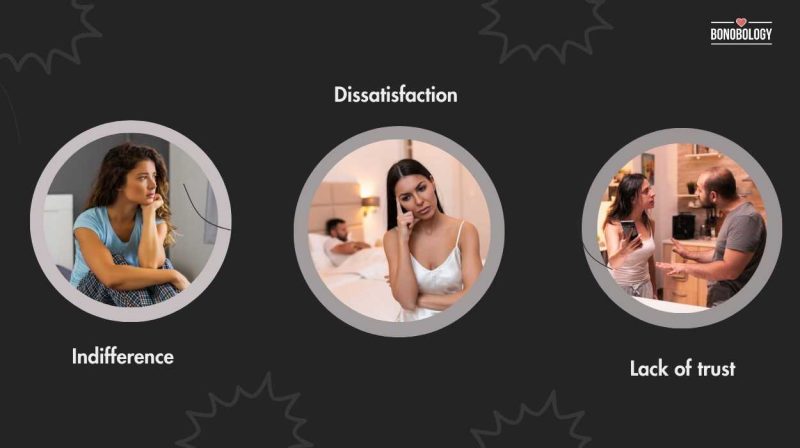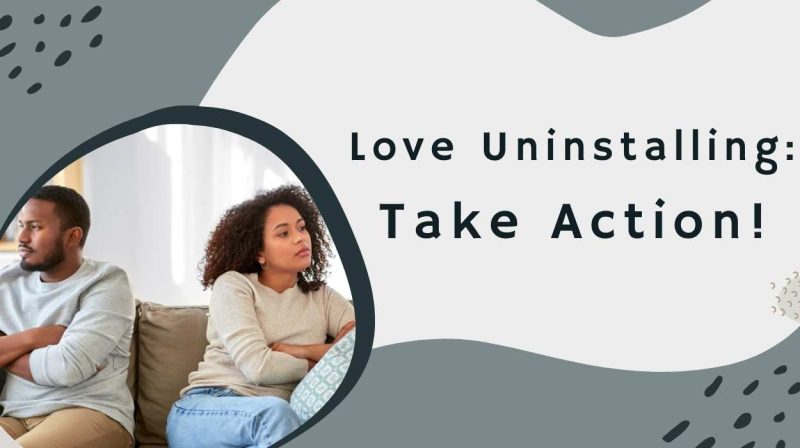Up until very recently, stonewalling, a.k.a. the silent treatment, was given as the go-to advice, at least in pop culture, for unsatisfied partners in relationships. “S/he’s giving me the silent treatment” doesn’t really raise any red flags and is scoffed off as a trivial, temporary problem. However, stonewalling abuse is a very real threat in relationships, one that might just jeopardize the whole dynamic.
Relationships are built around honest and open communication. By telling each other your wants and expectations, you let your partner know how to make and keep each other happy. When you take away communication from a relationship, you’re quite literally suffocating it.
Even so, couples often spend a couple of days stonewalling each other after fights. How then, could stonewalling be emotional abuse? Why is it done? What are the signs and effects of stonewalling in a relationship? How does one deal with being stonewalled? Let’s find out everything you need to know.
What Is Stonewalling?
Table of Contents
Before we answer whether stonewalling is abuse or not, it’s important to establish the definitions of both stonewalling and abuse in a relationship. The latter can be defined as any pattern of psychological or physical abuse that causes harm to a person physically or mentally. It’s important to note that abuse isn’t only limited to physical violence, and types of abuse include emotional, sexual, psychological and financial abuse.
Stonewalling in a relationship refers to when one partner completely cuts off all communication, be it verbal or non-verbal cues. For all intents and purposes, it may seem like you’re trying to talk to a stone wall. The motivation behind stonewalling may be to “punish” a partner, establish dominance, avoid an argument or a fight, or even gaslight someone.
Stonewalling abuse is commonly used by narcissists. Those with a heightened sense of entitlement might not even realize the damage they’re causing while giving their partner the silent treatment. It involves refusing to communicate with another person. Intentionally shutting down during an argument, also known as the silent treatment, can be hurtful, frustrating and overall harmful to the relationship.
Stonewalling can also be a defense mechanism for some people, a strategy they learnt in childhood to protect themselves. For example, they might have chosen to remain silent or not communicate to maintain peace. This probably developed into a behavior pattern as they grew up and this began to reflect or manifest itself in all the relationships they formed later in life. Stonewalling definitely is an aggressive behavior but it’s also often a tactic used by those who felt powerless in their childhood years or suffer from self-esteem and self-worth issues.
Related Reading: How To Respond To The Silent Treatment – Effective Ways To Handle It
Is Stonewalling A Form Of Emotional Abuse?
Now that we know what stonewalling means, it brings us back to the question at hand — is stonewalling abuse? To put it simply, stonewalling can be considered a form of emotional abuse. Since stonewalling can be done in an attempt to gain control and dominance, and/or gaslight and disrespect one’s partner by disregarding their attempt at communicating, it may end up causing significant harm.
When you belittle or disrespect a person, make them feel unheard, give them the silent treatment or refuse to engage in any kind of emotional discussion, it’s bound to affect them emotionally or psychologically. Anxiety, self-doubt, self-esteem issues and depression are just a few of the long-term consequences that prolonged stonewalling can bring.
Now that we have an idea of why stonewalling is abusive, let’s take a look at its signs, how it affects a relationship, and what ways you can adopt to deal with stonewalling abuse.
Signs Of Stonewalling In A Relationship
The signs of stonewalling can be several. But it majorly involves a person shutting down or snapping off all ties of communication completely. This, especially, happens when there is conflict or your partner wants to avoid an uncomfortable or emotional discussion, maybe, for fear of the matter escalating and resulting in a fight. Instead of listening to what you want to say or resolving the conflict, your partner might just switch themselves off to such an extent that it becomes impossible to get through to them.
Stonewalling is hard to recognize because the signs are subtle. You and your partner may not even realize that you are engaging in stonewalling. Sometimes, such behavior may seem normal or obvious in a relationship. A few signs of stonewalling include:
1. Your partner goes silent
If your partner gives you the silent treatment or snaps all communication – stops taking your calls, replying to texts or emails, etc. – it’s a sign that you are being stonewalled. Going incommunicado or becoming unresponsive is one of the most common signs of stonewalling. If your partner is inaccessible or unreachable for days or weeks or even months, know that it’s stonewalling.
2. You receive only monosyllabic answers
If the only response you’re getting from your partner is monosyllabic or one-word answers, it could be a sign of stonewalling. If your partner is only using words like ‘okay’, ‘sure’, ‘fine’, and the like during conversations or arguments, they are probably stonewalling. They are not expressing their emotions or thoughts on purpose.
3. You feel distant from your partner
Sometimes, taking a break or walking away from a fight or argument is normal in a relationship. But if it becomes a behavior pattern or your partner is continually distancing themselves from you, then there’s a problem. If they make excuses to get away from a serious conversation or limit your access to them, it’s a sign they are stonewalling you.
4. Your partner refuses to take responsibility for their actions
This is another major sign of stonewalling. If your partner refuses to accept their mistakes or take responsibility for their actions, they are stonewalling you. Your partner has probably been giving you the silent treatment, distancing themselves from you, refusing to talk or have a conversation or ignoring your calls and messages. When you confront them about the same and they refuse to accept responsibility for their actions, know that it’s a sign of stonewalling.
5. They dismiss your feelings or ridicule you
Another major sign of stonewalling is to dismiss your partner’s feelings and emotions. If you feel unwanted in the relationship or find your partner constantly belittling or demeaning you, dismissing your concerns as unimportant, accusing you of making a mountain out of a molehill, or ridiculing you when you say something, know that you are being stonewalled.

Stonewalling can be terribly frustrating and emotionally distressing for the person at the receiving end of it, because they may never know or it may be really hard to figure out what the problem is and why their partner is shutting them out. For someone who is engaging in stonewalling, such a behavior pattern is probably a form of control they use on their partner, which is why it is considered emotional abuse.
Related Reading: 20 Gaslighting Phrases In Relationships That Kill Love
Effects Of Stonewalling On A Relationship
Stonewalling can negatively affect a relationship as well as the mental health of those involved, especially the partner who is at the receiving end of it. It can cause irreparable damage to the relationship, no matter what the underlying cause of stonewalling may be. Being constantly made to feel inferior or unimportant can make a person question their self-worth and lead to self-esteem issues.
Shutting your partner out can aggravate the problem to the extent where you say things out of anger or frustration, which you might regret later. Refusing to communicate or walking out in the middle of an intense conversation is distressing, to say the least, and might lead to resentment and disrespect between partners. It just paves the way for an unhealthy and toxic relationship. Here are a few ways stonewalling affects a relationship:
1. Unresolved issues
When conflict in a relationship remains unresolved, it creates further problems between partners. They may start to hold grudges against each other, which may come out in unhealthy ways eventually. When one partner makes themselves inaccessible in the relationship or refuses to engage in dialogue to avoid discomfort, issues remain unaddressed causing the situation to escalate.
2. Disrespect between partners
Mutual respect in a relationship is crucial for it to survive. Stonewalling creates a sense of disrespect between partners. Imagine your partner snapping all communication or closing off completely to the point where they are unreachable. Doesn’t it feel disrespectful? Stonewalling causes one partner to feel like they aren’t respected in a relationship and that’s not what a healthy relationship looks like.
3. It makes you feel isolated and lonely
Lack of access to your partner can make you feel lonely and isolated. It’s like being in the same room but apart. You don’t feel like you’re emotionally close to your partner. The partner being stonewalled may suffer from extreme loneliness due to being shut out completely. Imagine not being able to talk or see or spend time with your partner for days, weeks or even months. You would feel ignored, isolated and left out, right?
4. It leads to anger and resentment
Stonewalling can cause an immense amount of anger and resentment in both partners. Such behavior patterns cause conflict in relationships, which further lead to partners feeling ignored. This often triggers a lot of anger and bitterness in partners, especially the one at the receiving end of all the stonewalling. Seeing their partner emotionally withdraw themselves or act coldly toward them can trigger sentiments of hurt.
Besides affecting the relationship, stonewalling can also impact the physiological health of both partners. A 2016 study by the National Center for Biotechnology Information on 156 couples over a period of 15 years claimed that stonewalling could cause partners to experience backache, muscle ache, stiffness in neck, rapid heart rate, and increased blood pressure.
In 1992, marriage therapist Dr. John Gottman also conducted a study in which he could predict divorce with an accuracy rate of almost 100 percent. He claimed that stonewalling was one of the ‘four horsemen’ that indicated divorce because such behavior causes conflict that could spiral out of control and ultimately end a relationship or marriage.
Stonewalling affects the emotional intimacy between partners and causes all communication to cease. This may further lead to partners withdrawing from each other. The person being stonewalled feels worthless, powerless and confused. However, it is possible to deal with the situation. Let’s take a look at a few ways you can deal with stonewalling.
Related Reading: Is Silent Treatment In A Relationship Emotional & Mental Abuse?
7 Ways To Deal With Emotional Abuse Stonewalling
Being ignored by someone who’s right in front of you can wreak psychological havoc on your mind. Emotional abuse or stonewalling can not only harm your equation with your partner, but also your relationship with yourself as well. More often than not, your self-esteem takes longer to heal than the hurt caused by the broken relationship.
Let’s take a look at how to deal with your partner when they act as though you’re invisible. What should you do when your partner, without so much as saying even a single word, screams out, “I don’t respect you”? Well, here are 7 ways you can deal with stonewalling:
1. Don’t assume blame; assess the situation
If you’ve done something to upset your partner and they saw it fit to punish you with a dose of stonewalling, it’s important to not be too harsh on yourself. When you end up blaming yourself for your partner emotionally abusing you, it may lead to self-confidence issues in the future.
Instead of assuming you’re entirely to be blamed for everything that led up to the stonewalling abuse and even while experiencing stonewalling emotional abuse, try to investigate what happened instead of indulging in self-hatred.
2. Understand the root cause and figure out a solution
Does your partner have a history of emotional abuse stonewalling? Is your relationship going through a crisis? Is there something that you may be doing unknowingly, that’s causing your partner to react this way?
Even though opting to react with emotional abuse stonewalling isn’t an ethical decision, once you figure out what caused it, you might be better able to come up with a solution too. Until you know what’s wrong, you can’t really start figuring out how to fix it.
3. Take care of yourself
“Is s/he going to leave me?”, “Am I the problem?” questions like these can end up wreaking havoc on your mind. It’s important to not let what goes on in your mind affect your body in negative ways.
Try to keep yourself healthy and productive and find a good way to manage the stress that comes with stonewalling abuse. By taking your mind off the tense situation your relationship is in, you’ll be making sure your relationship with yourself doesn’t suffer as a result.

4. When dealing with stonewalling abuse, voice your dissent
Just because you should look after yourself by making better use of your time, doesn’t mean you should let your partner’s behavior slide. Make sure you let your partner know how much their abusive behavior is affecting you, and that you’re not going to stand being treated this way.
A pattern of stonewalling emotional abuse usually indicates a toxic and unhealthy relationship, at which point you could even consider leaving. However, if you want to continue, make sure your partner gets to know it is not okay to disrespect you. One of the fundamentals of any relationship is mutual respect. The fact that you’re Googling “how to deal with stonewalling abuse” might indicate your dynamic is missing that key fundamental.
Related Reading: Romantic Manipulation – 15 Things Disguised As Love
5. Responding with anger will make it a lot worse
Anger, just like in most other cases, will do you no good while figuring out how to deal with stonewalling abuse. When you’re dealing with a narcissistic partner, it’s possible they might use emotional stonewalling abuse to establish control and guilt-trip you into accepting all the blame.
By reacting calmly and not giving a narcissist what they want, you’ll be forcing them to reconsider their abusive tactics. Try to have a normal conversation with your partner. Going in all guns blazing will probably result in no survivors at the end.
6. Don’t apologize to get it over with
We’ve all been in a situation where we realize that apologizing, even if it’s not our fault, is a lot easier than going through the ordeal of having a huge fight with our partner that doesn’t seem like it’s getting fixed anytime soon.
The problem with giving in and “getting it over with” is that you enable your partner to opt for abusive techniques like emotional abuse stonewalling to get what they want out of you. When a partner gets used to manipulation tactics like stonewalling to get their way in a relationship, they might not even realize the amount of damage they’re causing to their partner.
7. Seek professional help
When there’s a storm brewing in your mind, the advice you get from friends along the lines of “this too shall pass” is not going to do you any good whatsoever. If you feel your emotions are becoming too overwhelming and you need help to process them, therapy can help you get over this difficult time in your relationship.
Figuring out how to deal with stonewalling abuse by yourself may just lead you down a road of bad decisions, further deteriorating your sense of self. If you’re looking for help, Bonobology has a multitude of experienced therapists who can guide you through this challenging time in your relationship.
So, now that you know the answer to “is stonewalling emotional abuse?” and how to deal with it, perhaps you can make a more informed decision about what you want to do next. While love deserves all the chances it can get, an abusive relationship is best when it is spoken of in the past tense.
FAQs
Stonewalling abuse can, in many cases, be used as a form of control. Through manipulation and abuse, stonewallers may be hoping to establish control in their relationship by withdrawing any/all communication.
Examples of stonewalling include a partner avoiding conversing with you on a particularly difficult topic, or refusing to talk to you at all. Under the guise of being busy with other tasks, they may ignore or shut you out completely.
Your partner may avoid eye contact, not give any non-verbal cues, shift the topic of conversation or simply walk out on you. Another example of stonewalling is when a conversation is going on, but the other person opts to not engage or talk about that specific topic.
A narcissist is someone who doesn’t care about how their behavior impacts others, and their heightened sense of entitlement makes them opt for abusive and manipulative tactics like stonewalling abuse to get what they want.
Narcissistic stonewalling is done by a narcissist to gain control, manipulate a person into giving them what they want, or just to punish the other person.
Power Struggle In Relationships – The Right Way To Deal With It
Your contribution does not constitute a charitable donation. It will allow Bonobology to continue bringing you new and up-to-date information in our pursuit of helping anyone in the world to learn how to do anything.



